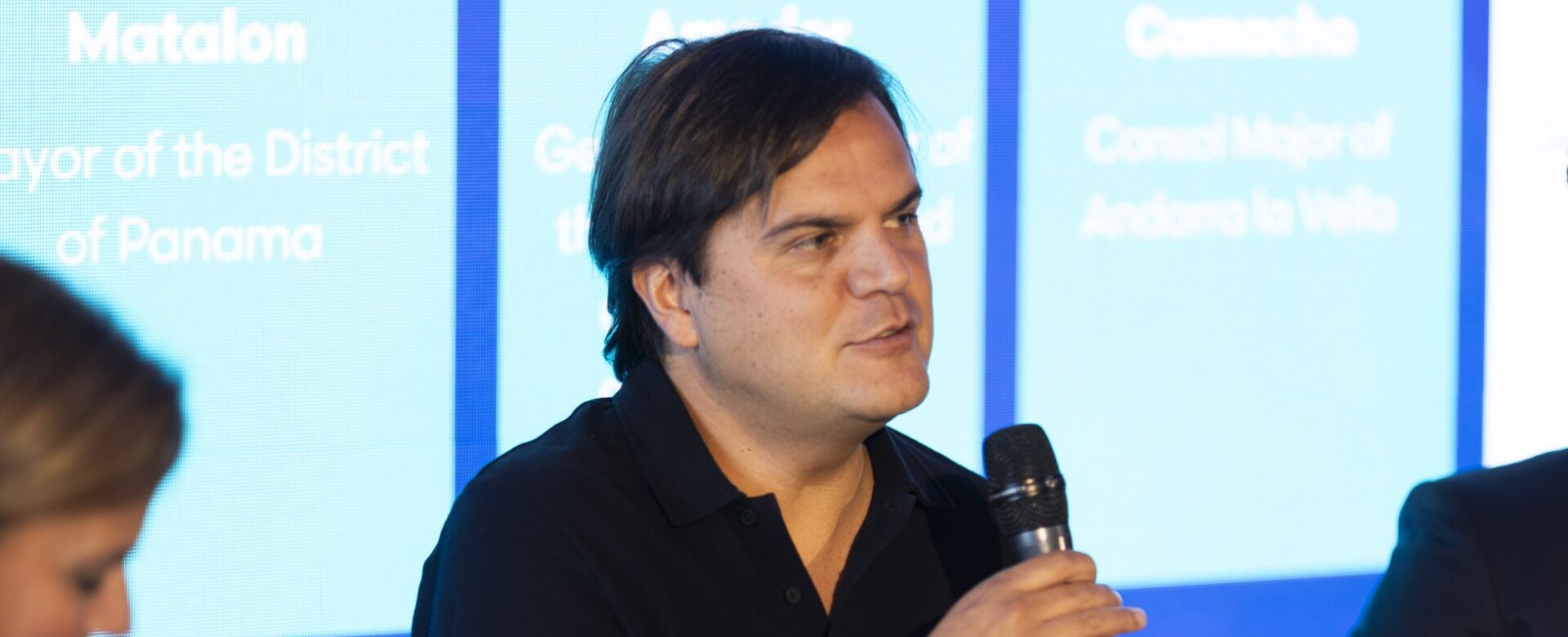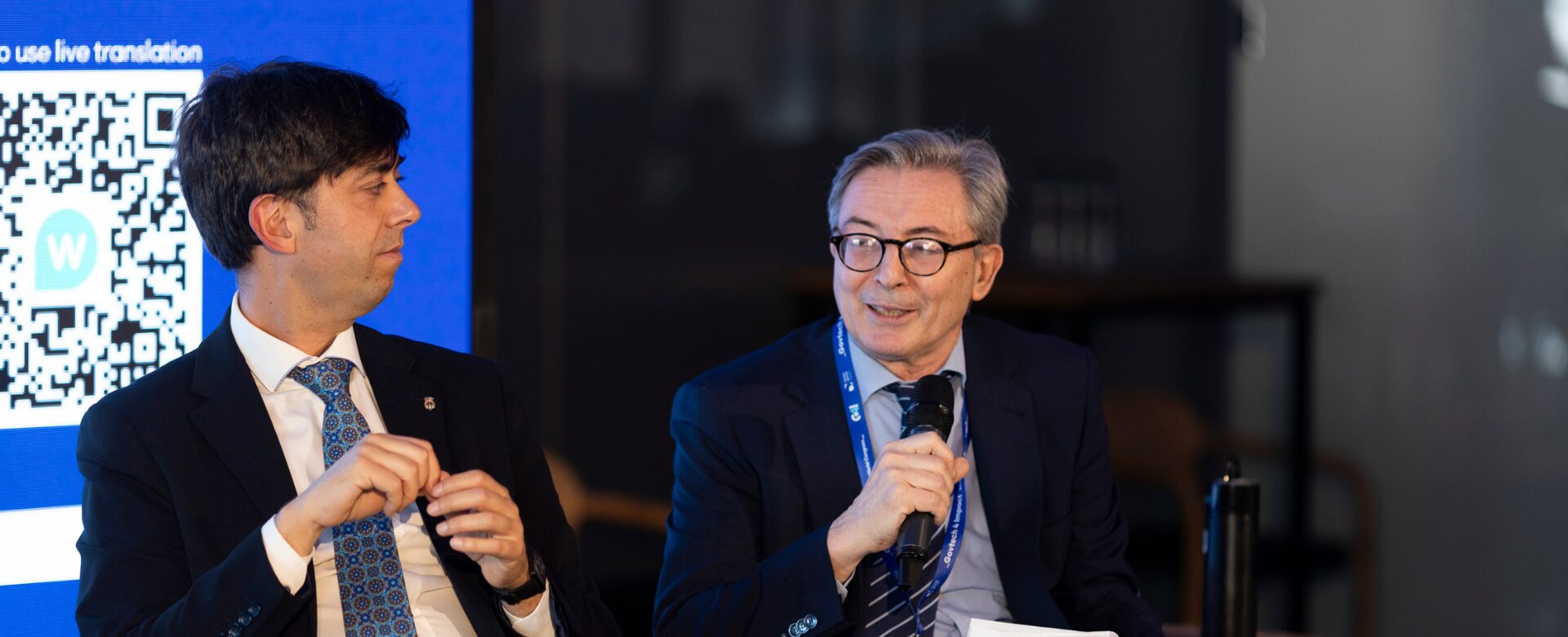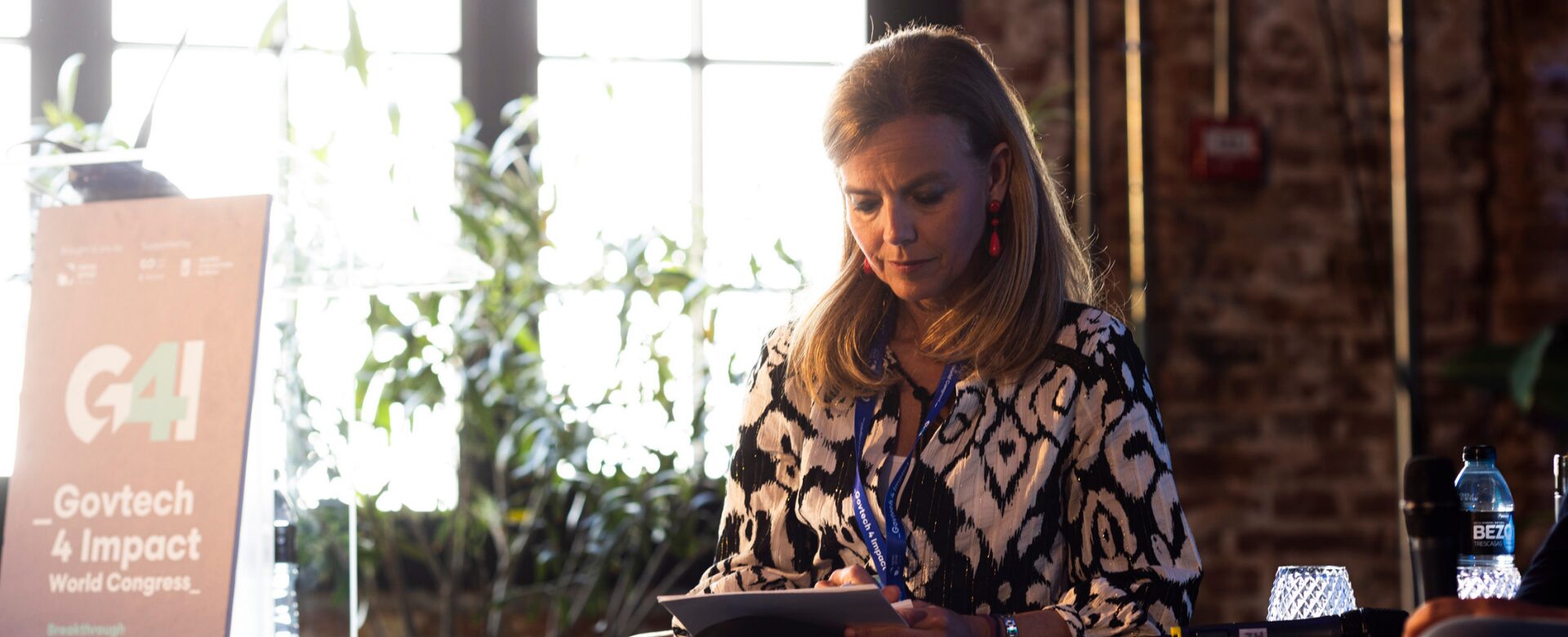AI & GovTech
Transforming Ibero-American Cities
Insights from Mayer Mizrachi Matalon,
Santiago Amador,
Sergi González Camacho,
and Fernando de Pablo
AI & GovTech: Transforming Ibero-American Cities at G4I 2025
Artificial Intelligence (AI) is no longer the future. It’s reshaping cities right now.
During a vibrant session at the GovTech 4 Impact World Congress (G4I) 2025, key leaders from across Ibero-America shared their experiences in leveraging AI and technology to transform their cities.
Moderated by Almudena Maillo, Madrid City Councilor and General Secretary of the Union of Ibero-American Capital Cities (UCCI), the session featured an outstanding lineup of panelists:
- Mayer Mizrachi Matalon, Mayor, District of Panama
- Santiago Amador, General Manager, Agata (Bogotá-based data analytics agency)
- Sergi González Camacho, Consol Major of Andorra la Vella, Minister of Urban Planning, Tourism, and Commerce
- Fernando de Pablo, Director, Digital Office of Madrid City Council
Here’s a closer look at what they shared about the transformative power of AI and GovTech in their respective cities.
Mayer Mizrachi Matalon: Reinventing Panama through Bold Innovation
Mayor Mayer Mizrachi Matalon captivated the audience with his bold vision, clearly driven by his entrepreneurial roots. He emphasized efficiency through digitalization: “We reduced municipal staff by 50% through digitalization alone,” said Mizrachi.
Under his leadership, Panama City is swiftly becoming a model for innovative urban governance, implementing pioneering initiatives like accepting tax payments in Bitcoin. Mizrachi stressed that successful GovTech implementation demands trust: “Technology is the tool, but trust between citizens and government is the currency,” he emphasized.
Highlighting strong partnerships with the private sector, Mizrachi shared innovative projects such as using recycled plastic for sponsored manhole covers, showcasing both sustainability and corporate citizenship. Mayer’s ambition is clear: to transform Panama City into Latin America’s Silicon Valley, where technology fuels economic and social prosperity.

Santiago Amador: Bogotá’s Data Revolution
Santiago Amador explained how Bogotá uses data-driven governance to foster inclusive growth. Agata, an innovative public agency designed to operate flexibly like a startup, bridges the gap between private-sector agility and public-sector impact.
“The biggest challenge in GovTech isn’t technology—it’s institutional and political,” Amador remarked. Agata addresses these challenges by partnering with startups, creating tailored solutions responsive to real public needs.
Amador highlighted Bogotá’s success with Chatico, an AI-powered WhatsApp chatbot that significantly increased citizen engagement. During Bogotá’s recent water shortage, Chatico helped inform 2.5 million citizens, proving invaluable in crisis management. Moreover, AI democratized city planning participation, enabling over 147,000 residents to contribute to Bogotá’s future – up from just 10,000 previously.
Amador stressed the importance of high-quality data: “If the data doesn’t exist, the solution doesn’t either.”

Sergi González Camacho: Leading Change with Vision in Andorra la Vella
Sergi González Camacho offered insights into how the smallest capital represented is achieving big ambitions. González underscored the importance of integrating technology into the city’s long-term vision rather than pursuing isolated projects.
Drawing inspiration from Andorra’s historical transformation from agriculture to tourism, he identified digital infrastructure as today’s critical resource. “In 1934, we harnessed hydroelectric power; in 2025, our power source is digital innovation,” González explained.
Importantly, González addressed cultural shifts required within government, promoting collaborative dialogue and risk-tolerant innovation. His message was clear: “Technology is essential, but vision, values, and trust must come first.”

Fernando de Pablo: Madrid’s Strategic Leap Forward
Fernando de Pablo outlined the city’s significant digital transformation accelerated by the COVID-19 pandemic. Madrid transitioned from 20% digital interactions pre-pandemic to over 80% today, demonstrating impressive progress.
Madrid’s investment in digital infrastructure underpins its smart city goals. “Without quality data, you can’t have quality applications,” de Pablo emphasized. He shared impactful AI initiatives like predictive city revenue models, solar energy assessments via digital mapping, and urban heat-island monitoring to enhance sustainability.
De Pablo emphasized collaboration as key, highlighting Madrid’s shared experiences with Bogotá and Buenos Aires in adopting AI solutions. His goal is to establish a replicable digital transformation framework tailored specifically to city governance, emphasizing, “Cities represent life itself—mobility, culture, sustainability. A city-specific digital model is essential.”

Almudena Maíllo’s Perspective
The conference was intended as a space to explore how technologies can be put to the service of the public interest from the local level. Almudena Maíllo emphasized that the four cities, despite their differences, share a firm commitment to innovation as a tool to address urban challenges and as a lever for economic development: “They understand and appreciate the tremendous potential of this technological disruption; not only as a mechanism to improve local public services, but also as a catalyst for local economic development,” she highlighted.

Key Insights from the Session:
- Trust & Vision: Technology thrives with clear vision and public trust.
- Data as a Resource: Effective governance depends on quality data and analytics.
- Public-Private Partnerships: Innovation accelerates when the private sector collaborates closely with governments.
- Cultural Shift: Successful GovTech implementations require adapting mindsets and embracing flexibility within governments.
This inspiring session underscored that Ibero-American cities, irrespective of size or geography, share a common commitment to digitally empowered governance. AI and GovTech are more than technological advancements -they’re essential tools to build resilient, inclusive, and forward-looking cities.
As Mayor Mizrachi eloquently concluded, “Cities don’t just adopt technology; they harness it to reshape their future.”
At G4I 2025, this panel of visionary leaders made it abundantly clear: the GovTech revolution is here, and cities across Ibero-America are at its forefront.
